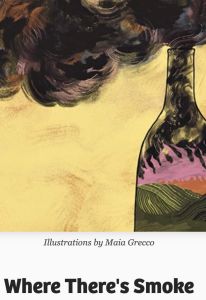Join getAbstract to access the summary!

Join getAbstract to access the summary!
Paloma Pacheco
Where There's Smoke
In the Okanagan, reports Paloma Pacheco, wine and wildfires make for a problematic pairing.
Maisonnueve, 2022
What's inside?
As wild fires and climate change affect Canada’s wine region, winemakers try to adapt.
Recommendation
Winemakers in British Columbia – and worldwide – are dealing with wildfires and climate change, journalist Paloma Pacheco reports for Maisonnueve. Vineyards that survive fires face the issue of smoke-tainted grapes that leave an ashy taste in the wine. Now vintners and researchers are seeking solutions. Some vintners are leaning into the taint by aging slightly harmed wine in oak barrels. Others are handpicking grapes, sectioning vineyards to identify areas with the most smoke damage and using reverse osmosis to try to eliminate any smoky taste. While other impacts of wildfires and climate change are even worse, fires gravely threaten the wine industry, just like everything else in their path.
Summary
About the Author
Vancouver-based journalist Paloma Pacheco writes for The Globe and Mail.

















Comment on this summary